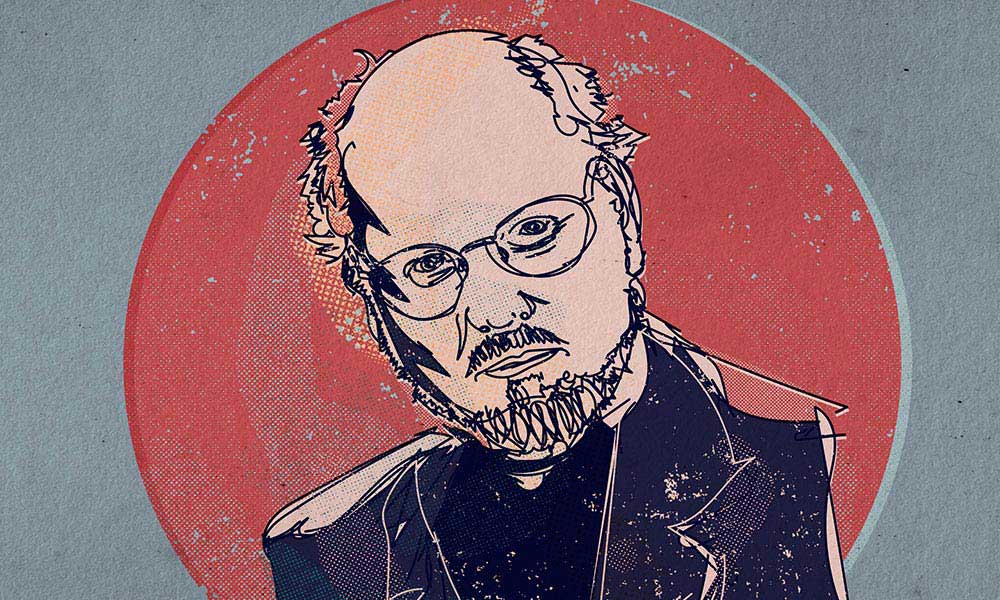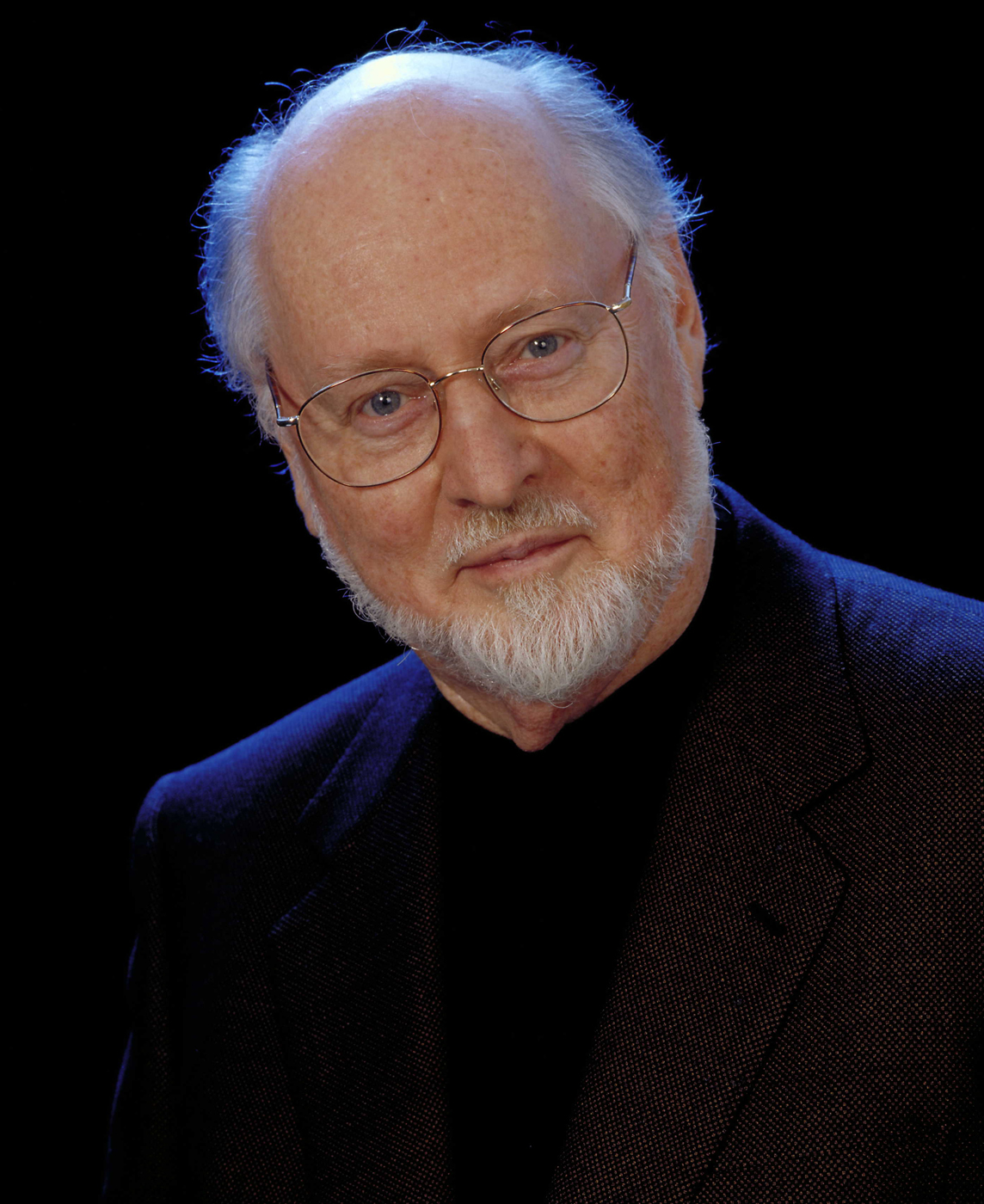
Illustration: uDiscoverMusic
“There are still many good tunes to be written in C major” said Arnold Schoenberg, a composer famous for atonality. He meant that accessible melodies and familiar chord changes need not be trite or banal – as long as the composer of them is a copper-bottomed genius, of course. And who better to represent genius-level accessibility and familiarity than composer John Williams, the musical comet who took a mere two notes and turned them into pure psychological terror in Jaws? Or who gave us the once-heard-never-forgotten five note theme of Close Encounters Of The Third Kind? No wonder he’s had 52 – yes that’s FIFTY-FUDGING-TWO! – Oscar nominations. For over half a century John Williams has shaped the history and sound of film music, his instantly memorable themes and consummate orchestrations gracing some of the finest movies of modern times. His extensive catalogue also includes other symphonic and chamber works, as well as innovative adaptations of his own cinematic themes. Let’s take a closer look at the most successful film composer of all time who celebrates his 90th birthday on 8 February 2022. Scroll down to discover our selection of the best John Williams works.
Listen to John Williams’ landmark debut with the Berlin Philharmonic on new album The Berlin Concert, featuring some of his best-known film music, on Apple Music and Spotify and scroll down to discover our selection of the best John Williams works.
Best John Williams Works: 10 Essential Tracks By The Movie Maestro
‘Out To Sea / The Shark Cage Fugue’ from Jaws
It’s been reported that when the clunky mechanical shark malfunctioned during the filming of Jaws, director Steven Spielberg – working on the principle ‘less is more’ – decided to use music to suggest the presence of the creature instead. Williams’s simple two-note sequence (based on E and F) then became one of the most terrifying motifs in musical history and one of the best John Williams works. “It grinds away at you just as a shark would do, instinctual, relentless, unstoppable,” said the composer. But his score also has much more to offer than just that scary musical spine-chiller. Listen to John Williams conducting the Vienna Philharmonic’s performance of the jaunty (and completely hubristic) sea-shanty which accompanies the braggadocio shark-hunters out to sea, followed by the sophisticated fugue for the hero’s encounter with the shark while he floats in a suspended cage.
Excerpts from Close Encounters Of The Third Kind
While it is true that composer John Williams has provided the world with some of the most instantly recognisable tunes of the twentieth and twenty-first centuries, his rigorous training at the celebrated Juilliard School in New York has given him a facility in hundreds of other styles as well. In the shark-cage scene from Jaws mentioned above, he wrote a dazzling formal fugue (a complicated type of music in which a single tune overlaps itself) for example. These excerpts from Close Encounters begin with a kind of pure jangly atonalism which would surely satisfy the most hardcore of musical modernists. Then the famously unforgettable ‘alien signal’ (D-E-C-C-G) arrives into the mix, and the whole morphs into a lush neoromantic soundworld.
Tuba Concerto
Although the majority of his work has been for the multiplex, John Williams has also frequently provided pieces for the concert hall. This tuba concerto was composed for the principal tuba player of the Boston Pops Orchestra to commemorate the 100th anniversary of the ensemble. The composer exploits just about everything the tuba can do, and turns on its head the notion that the instrument is only good for an Austrian oom-pah band or blurting out the occasional comical raspberry. Quite aside from the virtuosic joie-de-vivre of the work itself, it’s fantastic to see Williams supporting the ‘forgotten’ instruments of the orchestra.
‘Hedwig’s Theme’ from Harry Potter And The Philosopher’s Stone
John Williams has worked with some of the classical world’s foremost musicians in his six-decade (and counting) career. On the album Across The Stars he teams up with top-drawer violinist Anne Sophie Mutter for a dazzlingly virtuosic re-working of the music composed to accompany appearances of Harry Potter’s owl Hedwig in the film series. In just a few strokes, Williams and Mutter create such a vivid suggestion of nocturnal mystery and flight. Mutter describes it as “Harry Potter meets Paganini” and when you hear the speedy semiquavers and difficult double-stops, you’ll know why.
‘Superman March’ from Superman
“You’ll believe a man can fly!” says the poster. Well, you certainly will after hearing the iconic ‘Superman March’, one of the best John Williams works, which suggests the miracle of human flight using the simplest of means. A soaring high trumpet gives the impression of height, low thudding strings the earth below, and energetic percussion adds to the sense of speed. The introduction feels like a riff on Aaron Copland’s ‘Fanfare For The Common Man’, but Williams takes the mood in a completely different direction.
Theme from Star Wars
The theme from Star Wars, one of the best John Williams works, uses similar musical material to that of Superman but, for my money, just pips the latter to the post for sheer exuberance and swashbuckling derring-do. The second part of the theme makes an obvious genuflection at Holst’s The Planets, but once again, Williams takes his source, shakes it up, and makes of it something entirely his own.
Theme from Schindler’s List
One of the reasons Hollywood film scores became such a sophisticated source of pleasure from the 1930s onwards was the influx of talented Jewish musicians and composers fleeing Nazi Germany and arriving in Los Angeles. Although composer John Williams does not have a Jewish background himself, his love for the idiom is evident in the delicate and haunting theme from Schindler’s List. “Anyone growing up in film music as I have done has so many teachers who are Jewish; it’s so much a part of what we know and what we do. Those modalities are very familiar to us,” he once said.
‘Yoda’s Theme’ from The Empire Strikes Back
Violinist Anne Sophie Mutter captures all the gentleness, playfulness and even vulnerability in the theme for the 900 year-old Jedi Master Yoda. A sweet melody for a wise and benign character, it might be considered a major-key counterpart to the melancholic minor-key tune for Schindler’s List.
‘Sayuri’s Theme’ from Memoirs Of A Geisha
Displaying familiarity with yet another idiom, John Williams provided a Japanese-influenced soundtrack for Memoirs Of A Geisha without falling into the trap of making it sound like the jokey overture to The Mikado. It helped that he chose to work on the project with the Chinese-American cellist Yo-Yo Ma, whose wonderful Silk Road project had already begun to explore East-meets-West soundworlds. The resulting score is a fascinating fusion of sensibilities and cultures.
‘Olympic Fanfare And Theme’
Who better to compose the official music for the 1984 Olympics in Los Angeles than local boy John Williams? The typical Williams-style ‘big tune’ is counterpointed with an energetic, scurrying fanfare idea which perfectly suggests the energy and vision of the event. Goose-bump music of the highest order.
Recommended Recording
John Williams conducts the Berlin Philharmonic, one of the world’s greatest orchestras, for the first time on his new album The Berlin Concert. This landmark recording, featuring some of John Williams’ best-known film music captured live during a series of sold-out concerts, has been released to celebrate the renowned composer’s 90th birthday. The Berlin Concert features beloved hits including the ‘Superman March’, the Theme from Jurassic Park, excerpts from Close Encounters of the Third Kind and the Star Wars, Harry Potter and Indiana Jones films as well as some lesser-known gems such as the Suite from Far and Away and the moving Elegy for cello and orchestra. “For any musician to be standing in front of this orchestra, and to be here with you for these few moments, is truly a great honour and a privilege,” John Williams confided to the players before giving the first downbeat. The feeling was clearly mutual. After the concert Rolling Stone noted, “John Williams doesn’t need the films, the films need him”.




